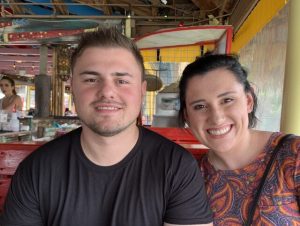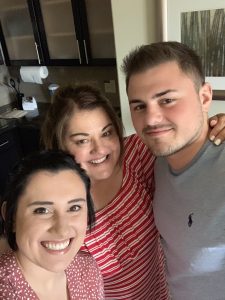Having someone in your family struggle with addiction is all consuming. All you want to do is be able to help them in some way.
Unfortunately, my younger brother lost his battle with substance use disorder in July of 2020. Ironically during this time he was working for the first time in months, had his own apartment, and had a girlfriend. All of the things we always thought would be the life goals that would help him to overcome his addiction. My brother’s story has taught me that addiction runs deeper than being busy, having a schedule, or just being stronger than drugs or alcohol.
Being his older sister was not always easy, but I can honestly say he has taught me more than any other person in my life ever has.
I would like to share with you four key life lessons my brother’s story has taught me to hopefully shine some light on the stigma surrounding addiction and the people who are addicted.
1. You aren’t broken or a bad person just because you have a problem.
My brother understood after years of struggling that having a substance use disorder wasn’t something he should hide. It was part of his journey but it didn’t define who he was. Just because you struggle with something doesn’t mean that is all you are. You are not broken even though sometimes you might be a bit bruised.
2. Prioritize your mental health.
People who struggled with addiction often struggle with co-occurring mental health disorders. The stigma around mental health and addiction was too much for my brother to handle, causing him to avoid getting help with his anxiety and choosing to self medicate. Diving into why you may be self medicating and getting treatment for the underlying cause may make it easier to work through your substance use disorder.
3. Nobody can do it for you. Hold yourself accountable for your goals. 
For years we thought if we just could help him then he would be ok. However, we learned that working a 12 step program, taking medication, or any other type of recovery program had to be something he decided to do for himself. All we could do is love and support him and understand that his recovery or his relapse needed to be something he handled himself, and not something he was forced into because we wanted to fix his problem for him.
4. Be kind and never take people or a day for granted.
The most important lesson I learned from my brother is to always be kind. It didn’t matter if he was deep in his addiction or clean from all substances, he was always kind. If he made a mistake, he always said sorry. If someone helped him, he always showed his appreciation and at the end of every visit or conversation, he always made sure to tell you he loved you. This kindness he displayed wasn’t just with his family either. This past summer at my brother’s funeral service every person that came up to talk to us always talked about how nice of a person he was and how much he will be missed. We should all strive to have that be how we are remembered.










